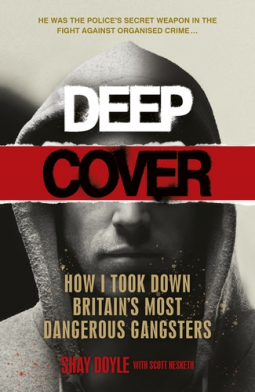Adventures in Crime Fiction Land
Thursday, 10 March 2022
Deep Cover by Shay Doyle with Scott Hasketh
A Taste for Poison by Neil Bradbury
The Hungry and the Fat by Timur Vermes
This is a book about a reality TV star/presenter, Nadeche Hackenbusch, who goes to film her show, Nadeche Hackenbusch: An Angel in Adversity, in a refugee camp in sub-Saharan Africa. Her show previously has shown the plight of refugees living in hostels, but now they’re taking it to the next level.
And soon her show is a hit.
Nadeche herself is naïve and seems to care only about shallow things (handbags and make up, etc) but the TV executives underestimate her (as does everyone) and when she falls for the refugee who is the show’s fixer, Lionel, trouble is in store. Because one thing leads to another, and she and Lionel decide to walk to Germany to seek asylum.
With 150’000 other refugees in tow.
The author paints a scenario where all the countries this human convoy passes through let them pass, because they don’t want to be stuck with them. At first the German government and the rest of the world don’t take them seriously, but as they get closer and closer, the panic sets in.
This is a great novel and despite its length, I was gripped all the way through. The plot is weirdly plausible, despite being far-fetched, and always topical (because when isn’t the world gripped by a refugee crisis), and I write this review while Russia wages war on Ukraine and refugees flee that war zone.
While Ukrainian refugees are welcome (so far) many refugees are treated with hostility, whatever the suffering they've been through, and the author shows how those in Germany who want to be humanitarian are pitted against those who want to slam shut the gates of Fortress Europe. And all the while, the refugees are stuck in the middle.
A fantastic read, as was Look Who’s back, I look forward to Vermes’ next novel.
Murder: The Biography by Kate Morgan
Monday, 22 November 2021
Use Your Psychic Powers to Have It All by Uri Geller
The Inheritance by Gabriel Bergmoser
The Witch Bottle by Tom Fletcher






